August 15, 2022 - Continuing our look at how to improve tourism in Split, one of the city's tourism pioneers, Hotel Development Specialist and Expert Tourism Consultant Zoran Pejovic of Paradox Hospitality, offers his thoughts.
TCN's recent editorial Is Split Tourism 'Strategy' Killing the Goose with the Golden Eggs? attracted quite a lot of attention, as we tried to uncover how Split - which has grown exponentially as a destination over the last decade - has been attracting a lower class of drunken tourist in recent times, whose actions have flooded the TCN inbox with requests from expats, locals, and tourism businesses to try and highlight the issues with a view to finding solutions. I am very grateful to Mayor of Split, Ivica Puljak, Split Tourist Board Director, Alijana Vuksic, and legendary tourism consultant Mario Seric, for all putting their views in the editorial which you can read in the link above.
Their thoughts were followed by a great interview with the founder of the ULTRA Europe Festival, Joe Basic, whose vision was fascinating, as were his practical solutions to improve the situation relatively quickly and painlessly. You can read his interview here.
Next up, one of the pioneers of luxury tourism in Croatia, the man who brought the wine bar to Split (did you know that they did not exist 10 years ago?), and a friend I have known for 10 years, as we have watched the direction of Split and Croatian tourism over many a glass of wine and beer. Zoran Pejovic of Paradox Hospitality is not a man who does things by halves, and the Paradox Wine and Cheese Bar, Paradigma fine dining restaurant, and Maslina Resort on Hvar are just three examples of him pushing the boundaries of quality and innovation in Dalmatia in the last decade.
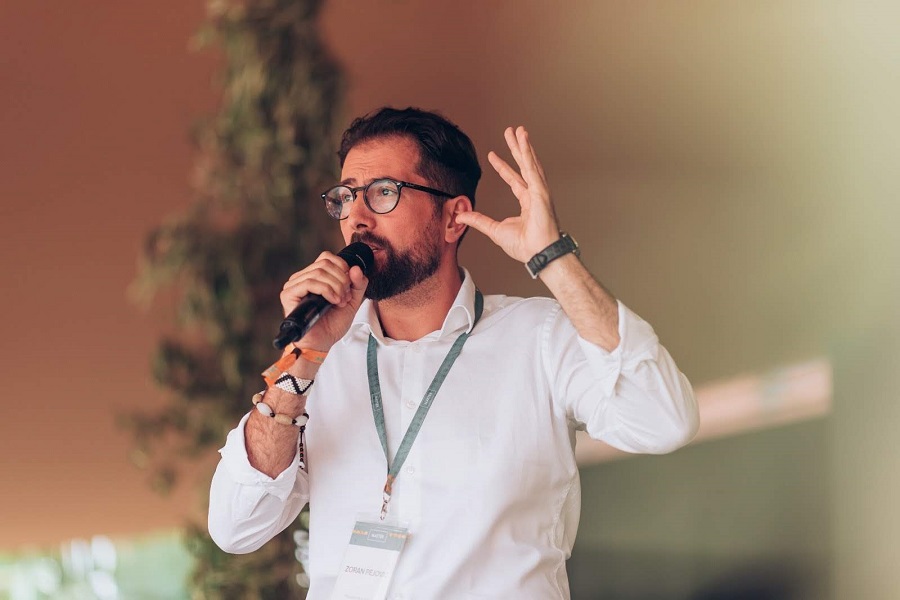
1. Take us back a decade. Paint a picture of Split as a destination. What attracted you to move there?
My decision to move to Split was a concoction of many different, unrelated global and personal events. It involved, among other factors “the coming out” of the global financial crisis, me having a best friend in Split, and my thoughts on how Split obviously must be the center of tourism in the Adriatic, given its geography, history, and culture. I have been coming to Split ever since 2001, and in those early years was always amazed and flabbergasted how most of the restaurants in the city center took August as their collective annual leave. Mind you, I was living in Dubrovnik back then, which was already doing very, very well, and the summers felt like a festival of tourism while Split was firmly outside of the tourist maps. However, in the years leading up to my move to Split, I was living across the globe and was very unfamiliar with the state of the industry.
I remember asking Marko, my partner to be in our common hospitality venture, if he could write up a list of the five best restaurants for me to visit on my arrival in Split, in December of 2011. I have asked the same for the wine bars, hotels, and so on. He came back with a list of three restaurants of which two were konobas, one hotel, and zero wine bars. I then asked him to ask his colleagues, all in the top management positions in Splitska Banka to write up their lists. They came back with the same lists. I was shocked and at the same time certain that Split had to be the next Barcelona. It was a platform that just had to be upgraded with the right mix of hotels, restaurants, and wine bars, and alongside the specialized destination management companies focusing on culture, adventure, and experiential offerings it was destined to be successful on all fronts.
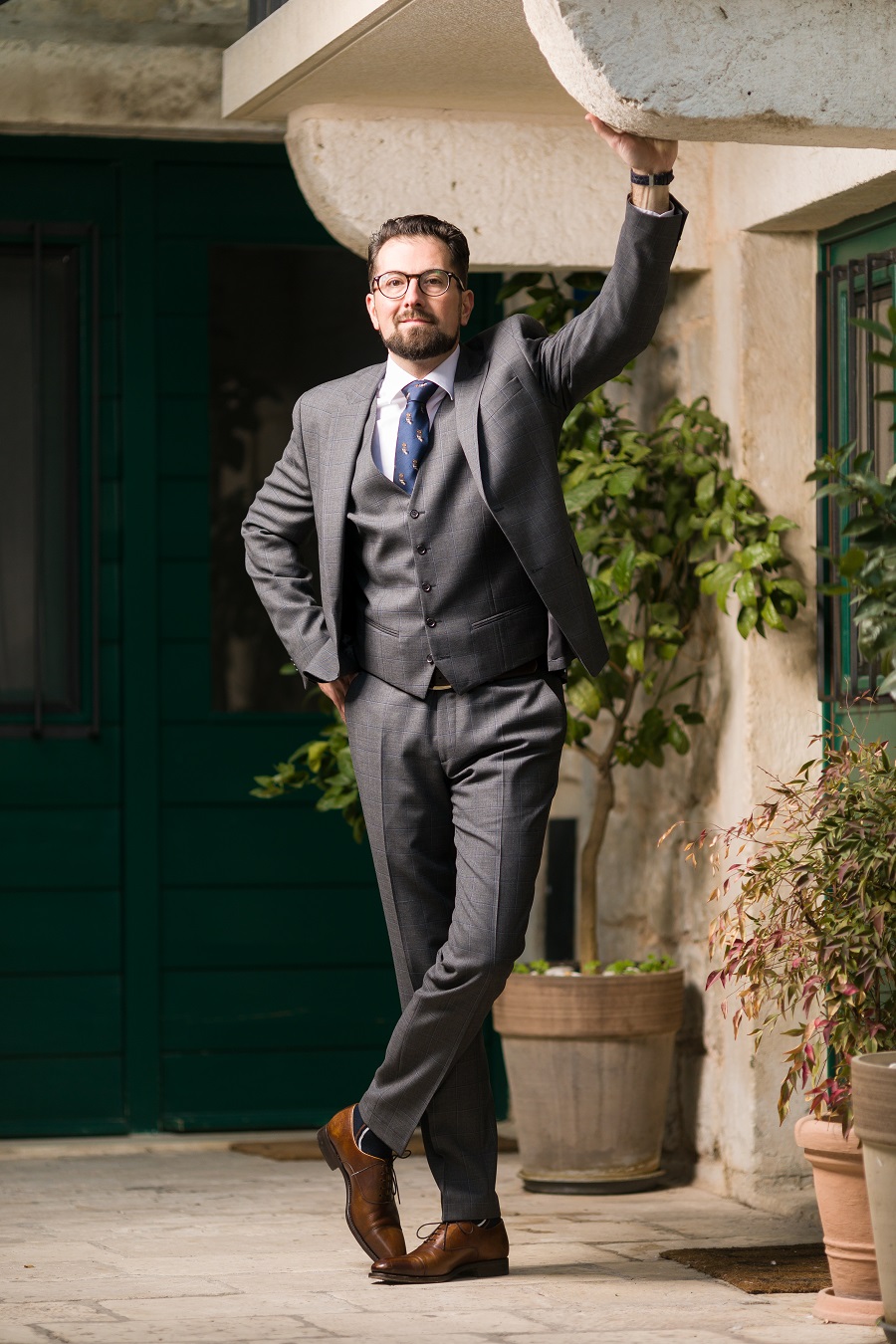
(Photo by Nikola Radovani)
2. You brought the wine bar to Split, a true pioneer. Tell us about that, and how things developed due to your initiative. Are you happy with the results?
Firstly, we could not have opened a wine bar, as such categorization did not exist within the rules and standards on classification, minimum conditions, and categorization of catering facilities. There was a pub as an option, mind you, not a wine bar. I don’t believe that has changed in the meantime. We have faced so many weird questions and constraints that we have decided to officially name our konoba, dressed as a wine bar, Konoba “Wine & Cheese Bar Paradox”. A lot has happened right off the bat. People thought that we were crazy offering 50 wines by the glass, but by the next summer, there were several new places with a similar concept, some even copying the menu to the t. The winemakers were very happy. I remember Andro Tomić telling us that if someone should be getting the government subsidies, it was people like us, not them, cause if we sold more wines, and promoted the wine culture better, they would do just fine. We had amazing support from the Hvar winemakers in those early days. Soon after, we started growing our loyal following in Split among the locals. We held hundreds of events over the years targeting the local wine lovers, expanding it later to wine and music lovers. And cheese as well, of course. Ah, that was another funny thing. We were ridiculed for serving cheeses with jams, but only for about two months. After that, it became the standard way of serving it all around.
I had some industry colleagues coming and sitting for hours in our wine bar and just observing how we were doing things. It was a very hopeful and promising period. I was working like a nutcase but was looking favorably into the future.
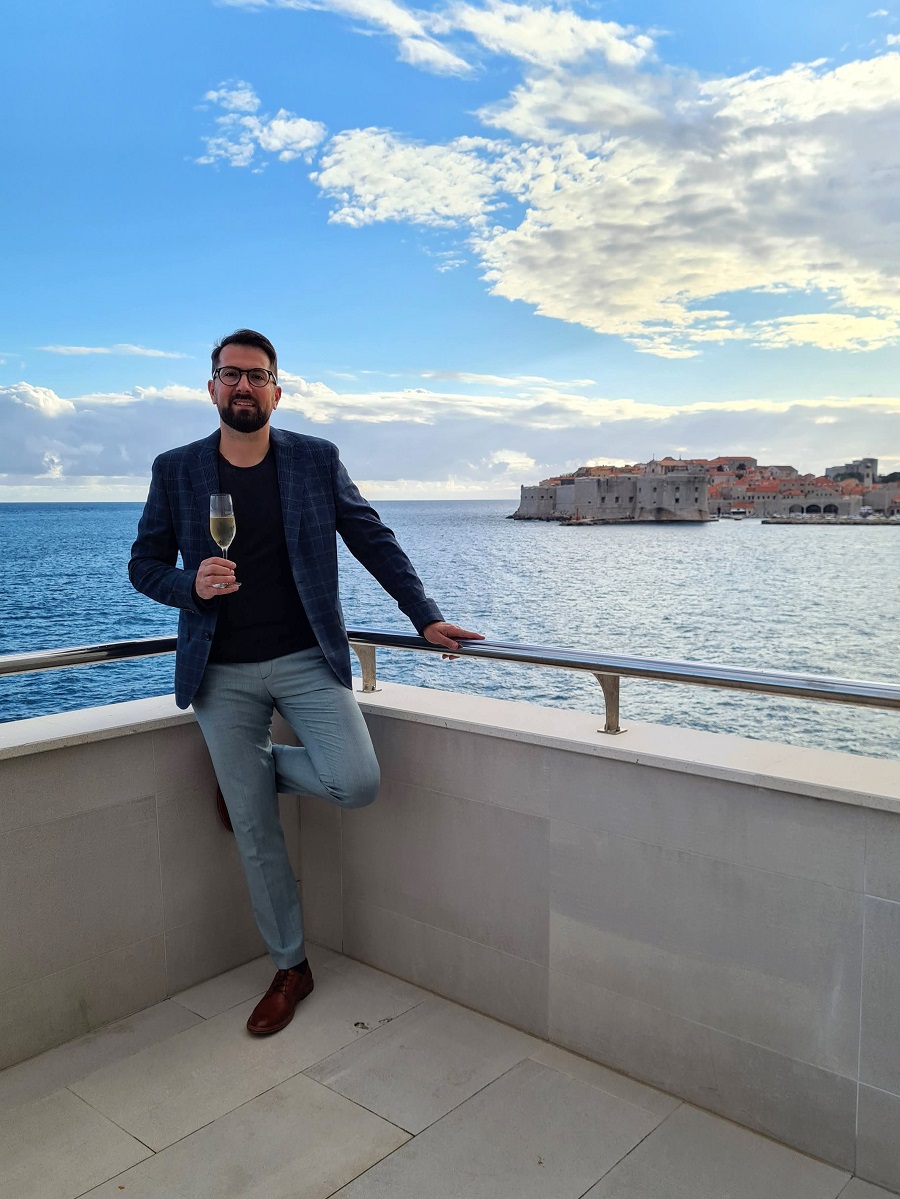
3. How do you see Split as a destination 10 years later compared to back then?
It is easy to call it a missed opportunity, but history does not move forward in such a linear direction. Things are way more complicated, and I refrain from offering simple answers to complex problems. There have been so many externalities that one could not have predicted back in 2012. Covid-19 is one example that many would cite as the defining global event of the past ten years. Another one, perhaps even greater than Covid-19 is the role of social media in the life of a destination, a restaurant, or a hotel, and that rise of influencing fast-changing trends. Then there is the entire change in the demographics on the side of the consumers, as well as on the side of the providers, and the industry, globally losing the appeal it had for many young people as the industry of choice. I could go on with the global changes that affected us full-on, despite us being on the map only tangentially in relation to the epicenters of those changes.
Then, you have a whole host of national externalities that are outside of the reach of Split’s jurisdiction, from well-documented administrative loopholes to the fact that the apartmanization has been seen as a sort of a social welfare system, avoiding the introduction of the property tax, and even taxing the apartment rentals at such a positively discriminatory rate, that any other investment seemed foolhardy. On the other hand, we have seen a roulette of tax codes in the restaurant industry moving from 22% to 23%, to 24%, to 25%, to 10%, to 13% to 25%, or some sort of that combination. Anyway, this is not to say that the local industry and the local politicians are not to blame, but truth be told, it was a whirlwind of learnings and failures on the part of the industry, with many having absolutely no previous experience and having to learn overnight in an often hostile environment, producing a barely edible, partially overcooked, but mostly undercooked mix of everything, garnished with a significant number of short-term speculators and a side dish of a non-edible mash of political shenanigans.
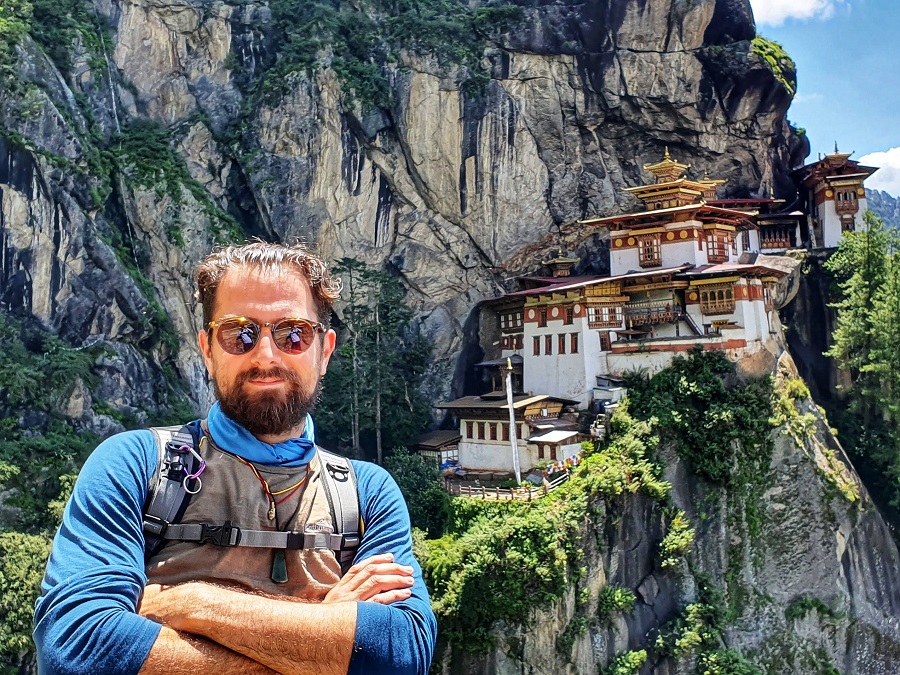
Sure, I would have loved to see how Split would have developed should Marjan have opened in 2014 or so, as announced back in 2012, bringing the large-scale yet upscale operation to the city with the greater off-season and MICE opportunities, with Hotel Amabasador following suit, with Bellevue being the flagship historical hotel, with Villa Rossina pushing the boundaries in the luxury villa accommodation, with some of the Žnjan hotels coming to life and so on. That could have pushed the city wider and longer, spatially, and timewise, relieving some of the pressure on the historical center as well as dispersing more travel to the low season.
To answer your question, Split of today is a mish-mash of everything, that attracts a mish-mash of guests, without clear destination branding, without the industry coming together in some cohesive manner, but a destination that yet can deliver over many decades to come.
4. Split has changed enormously in the last decade, with an explosion of tourism, a lot of it a younger crowd with access to cheap alcohol and pub crawls through the UNESCO World Heritage Site of Diocletian's Palace. What are your thoughts on this?
What can I say? It is not my crowd, and it is not how I develop my businesses, but these are the guests we have today, partially due to our failings, partially due to the pent-up demand among the young people being locked up for a couple of years. Some people are behaving like there is no tomorrow. This is more than a Split problem. As long as they are behaving within the legal bounds, I can’t fault them. I am not the one to throw moral judgments around. I don’t believe that drinking yourself into oblivion and losing memories tend to make people happy, but that seems to be the name of the game for many young people in these months following the two-year pause on social life. Some of it will go away naturally, some of it we will have to forestall with clearer communication, and some we will have to convert to different types of activities and tourism. That is the part that rests heavily on the shoulders of the industry leaders in the city.
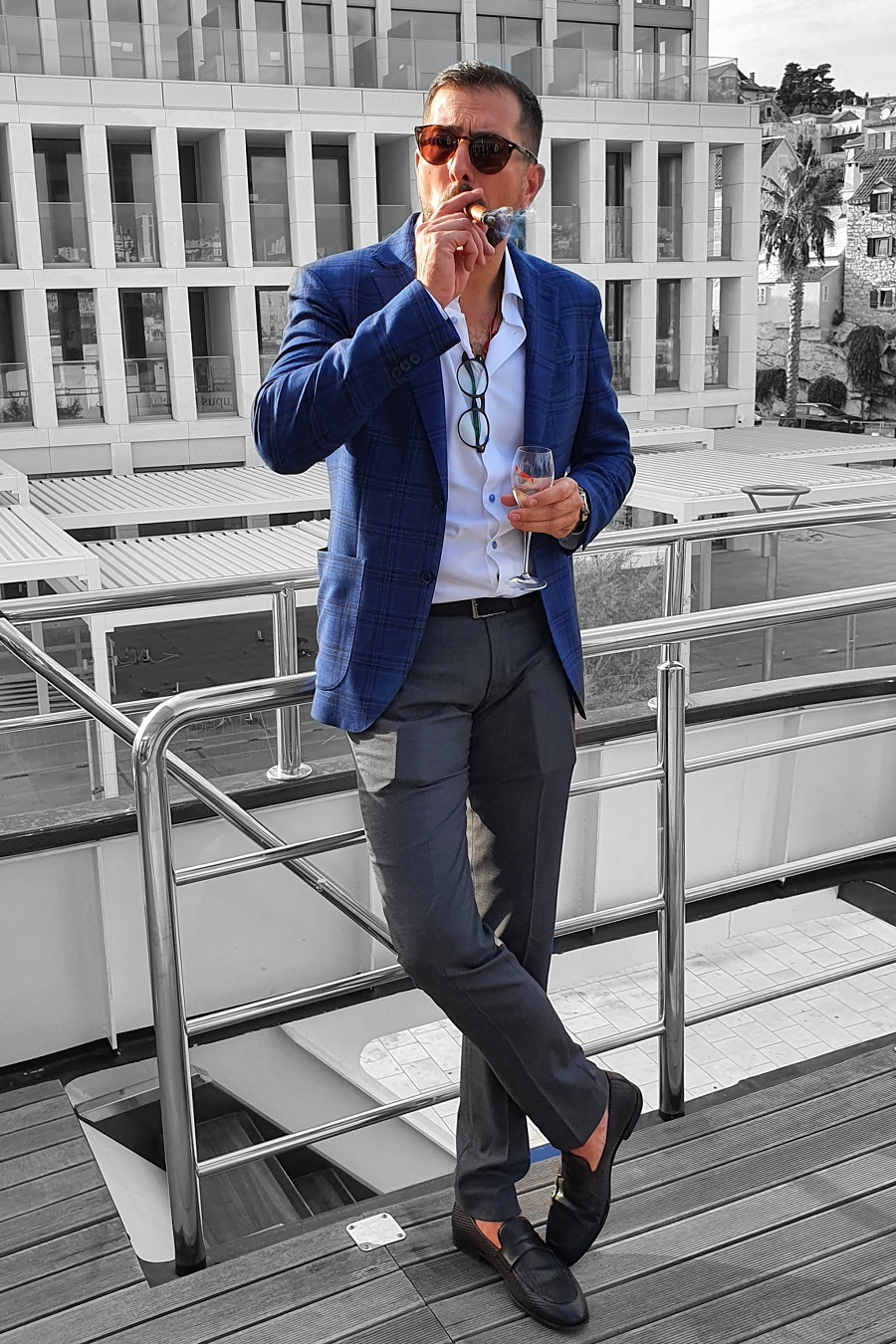
5. Several people point the finger at Ultra Europe for starting this. Do you agree? And if not, why not, and what is responsible?
That would be exactly what I said earlier, explaining the complex situation with a simple answer and pointing a finger at everyone’s favorite villain. I think that I have explained the confluence of different trends, externalities, and local failures in some detail already.
6. What kind of destination should Split be, and what is the ideal profile of tourist?
There is no such thing as the ideal profile of a tourist. Things change and evolve and what a typical upscale traveler looked like twenty years ago, how they look today, and how they will look like twenty years from now are completely different.
Split is not a little coastal town. It is the largest city on the Eastern Adriatic, and it needs to attract all different sorts of tourists and play on all of its main points of distinction, from the historical and cultural backgrounds to the extremely favorable geographical positioning, to sports, and music and gastronomy. Split needs to lead the way, and the only way it can achieve that is through education, formally with better hospitality schools, and informally through the successful stalwarts of the industry, aka internationally recognized hotels and restaurants that are pushing the boundaries of service excellence, firmly rooted in the continuity of living and sense of place that is our key point of distinction. We need local heroes of the industry, but also we know how Split treats its heroes often, so perhaps we skip that recommendation.
It takes decades to achieve this goal, while the goal keeps changing. I understand that this may sound like a word stew that means nothing, but that is the best I have to offer right now.
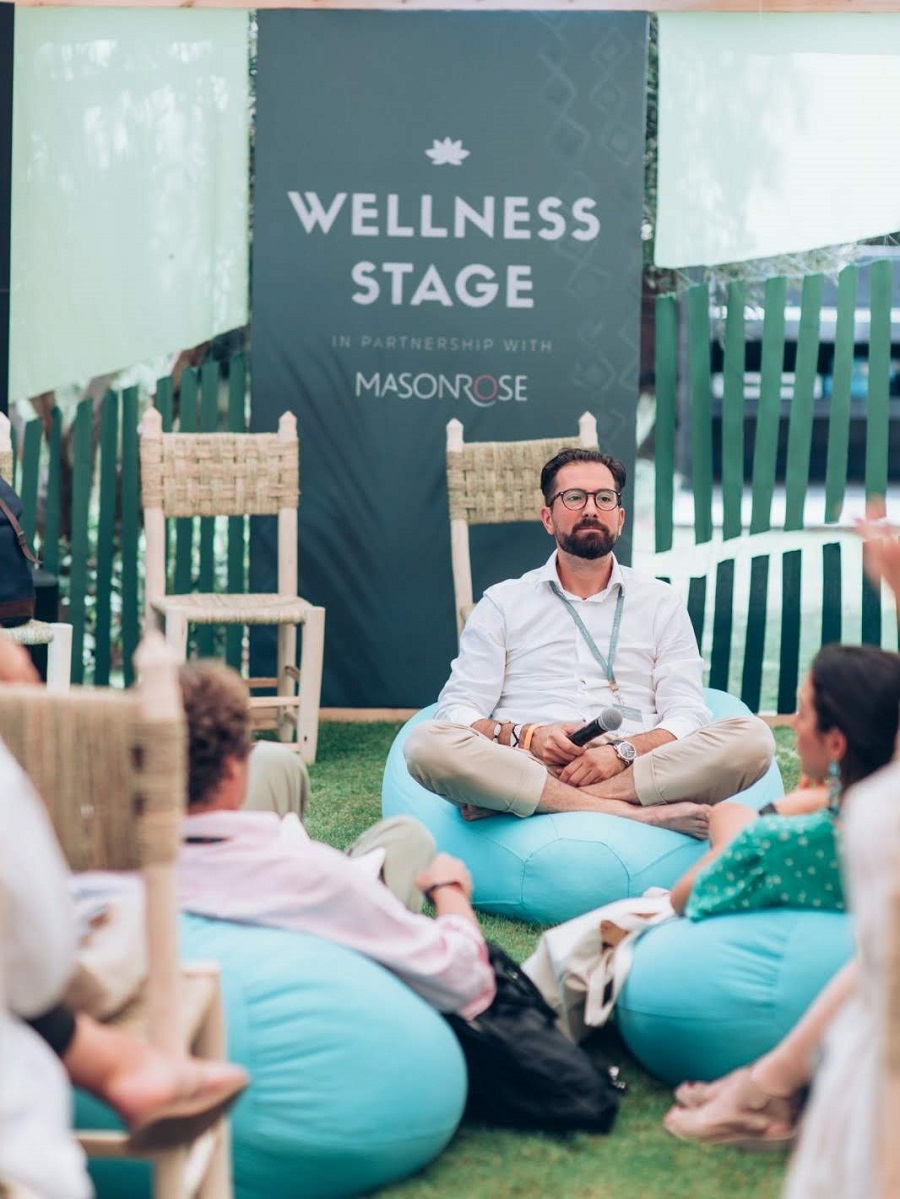
7. You are the Mayor of Split and Split Tourist Board director in one. Tell us what your strategy is to develop the city's tourism.
I will share these thoughts directly with the Mayor of Split.
8. 3 quick wins to improve the current situation?
If you are referring to the recent scenes from the historical center of Split, that can be partially mitigated with a clear communication campaign, meetings with the stakeholders that are propping up this behavior, and enforcing stronger rules with better policing. However, that is not something I think about that much. I am much more concerned about the ways in which we can regain some of the attractiveness as the industry of choice, especially for the young people, which largely sit on the shoulders of the industry; how can we attract more mindful hotel developers, with long term vision and respect for the local community to invest in our city; and how can we fix the existing infrastructural challenges that are causing the same pains for the local and the tourists alike. The other two aspects are something the industry without the help of politics can’t achieve.
9. How do you feel about the direction of Croatian tourism? Is it on the right path?
Someone once said that it is better to use a compass than a map to reach the destination. Well, we never had a map, and the compass is often broken, so we are a bit lost in the storm of other people’s making, and our inability to take control. We are kind of heading in the right direction, but moving very, very slowly. Some people have shown us the way. Here I mostly speak of the winemakers, olive oil makers, and to an extent, the cheesemakers. You might wonder why I bring the world of agriculture when we talk about tourism, but that is exactly our point of distinction: tourism that is born out of agriculture, and the one we don’t see yet, and I hope we get to see, agriculture born out of tourism.
And education, of course, education…
10. And finally, what is Zoran Pejovic working on next? I know you can't sit idle for long...
There is so much going on, some days I feel like I am on a rollercoaster of calls and meetings on future projects. I might have to venture outside of Croatia for a bit, most probably Norway and the USA, as the projects that are in the pipeline in Croatia are just too far in advance for me to make my living, especially given the past two years and the capitulation of our Split ventures under the weight of the external pressure, Covid-19 closure and our lack of readiness to gamble away our reputation through cost cutting, employee reductions and overall compromise of quality, coupled with the internal inability to carry on financing the old ways indefinitely. There are a lot of scars from the past two years, so some international exposure is needed to expedite the healing process, before returning to deliver another flagship project to Croatia, the way we delivered Maslina Resort on the island of Hvar, or the way Paradox and Paradigma led the way in the development of Split’s wine and gastronomical scene.
You can follow Zoran Pejovic on LinkedIn or find him on the Paradox Hospitality website. He is also an occasional contributor to TCN and wrote some excellent articles about tourism during the pandemic.
Read more on the current state of tourism in Split:
Is Split Tourism 'Strategy' Killing the Goose with the Golden Eggs?
ULTRA Europe Festival's Joe Basic Talks Split Tourism Development.
****
What is it like to live in Croatia? An expat for 20 years, you can follow my series, 20 Ways Croatia Changed Me in 20 Years, starting at the beginning - Business and Dalmatia.
Follow Paul Bradbury on LinkedIn.
Croatia, a Survival Kit for Foreigners will be out by Christmas. If you would like to reserve a copy, email This email address is being protected from spambots. You need JavaScript enabled to view it. Subject 20 Years Book


